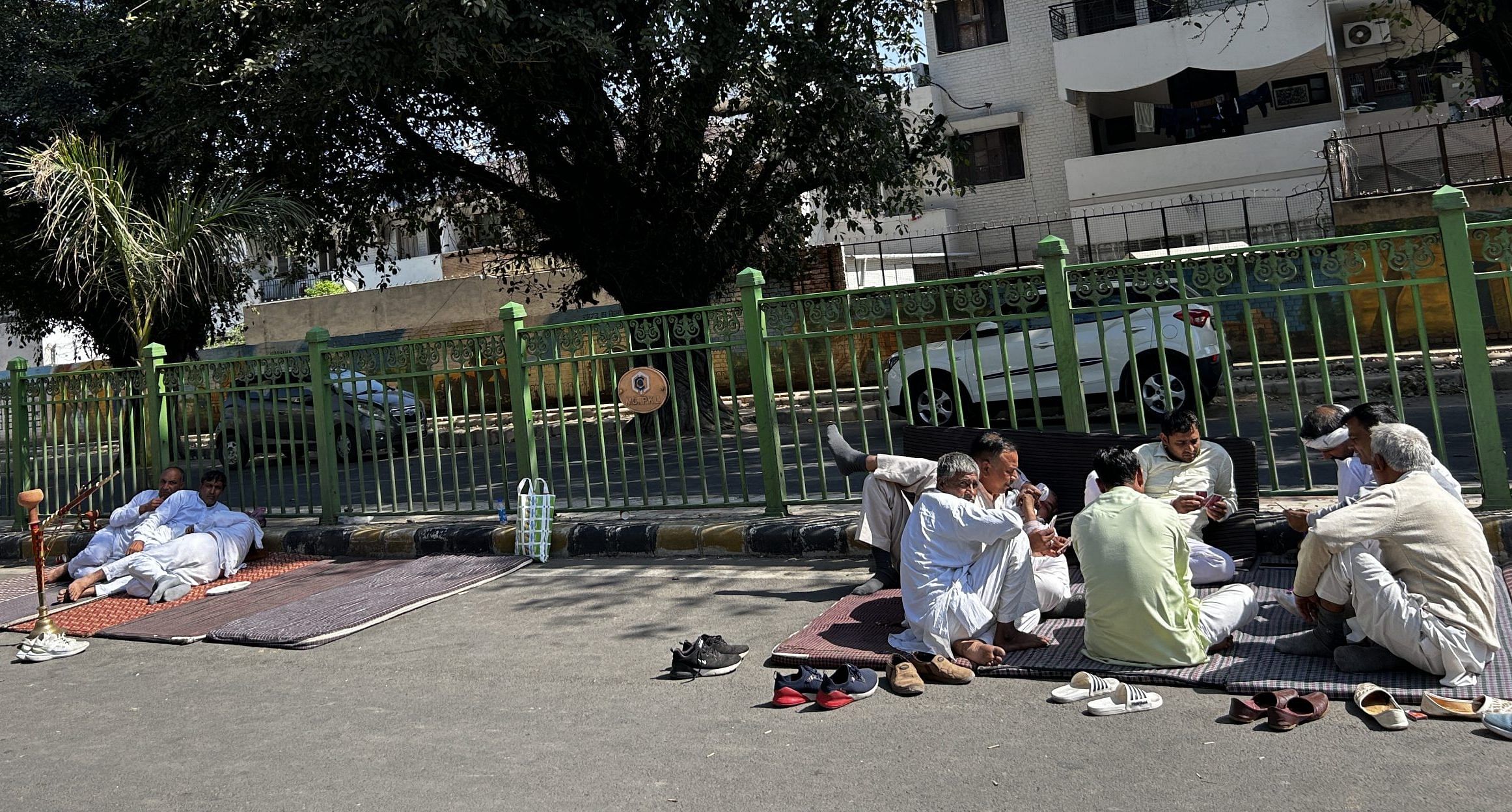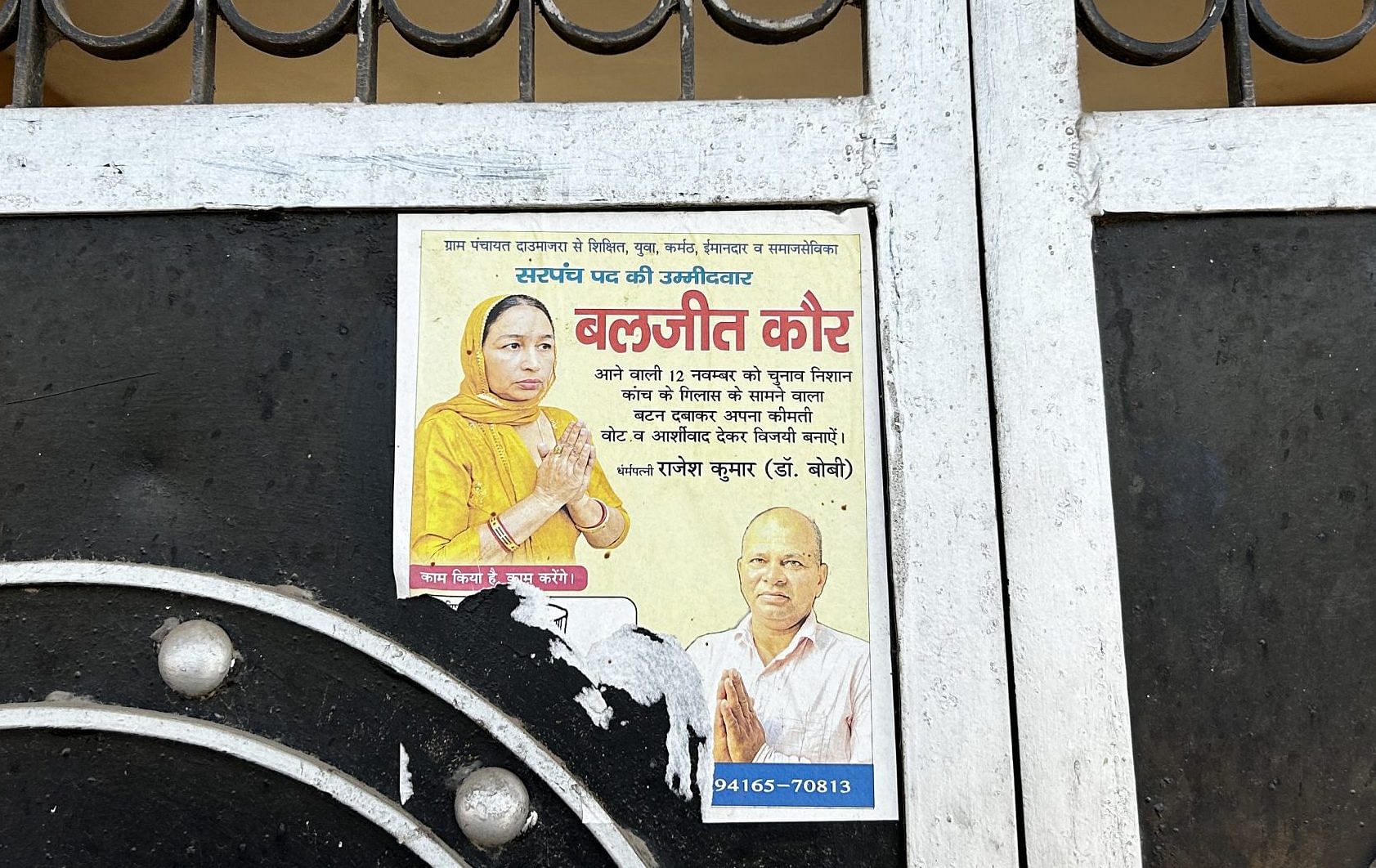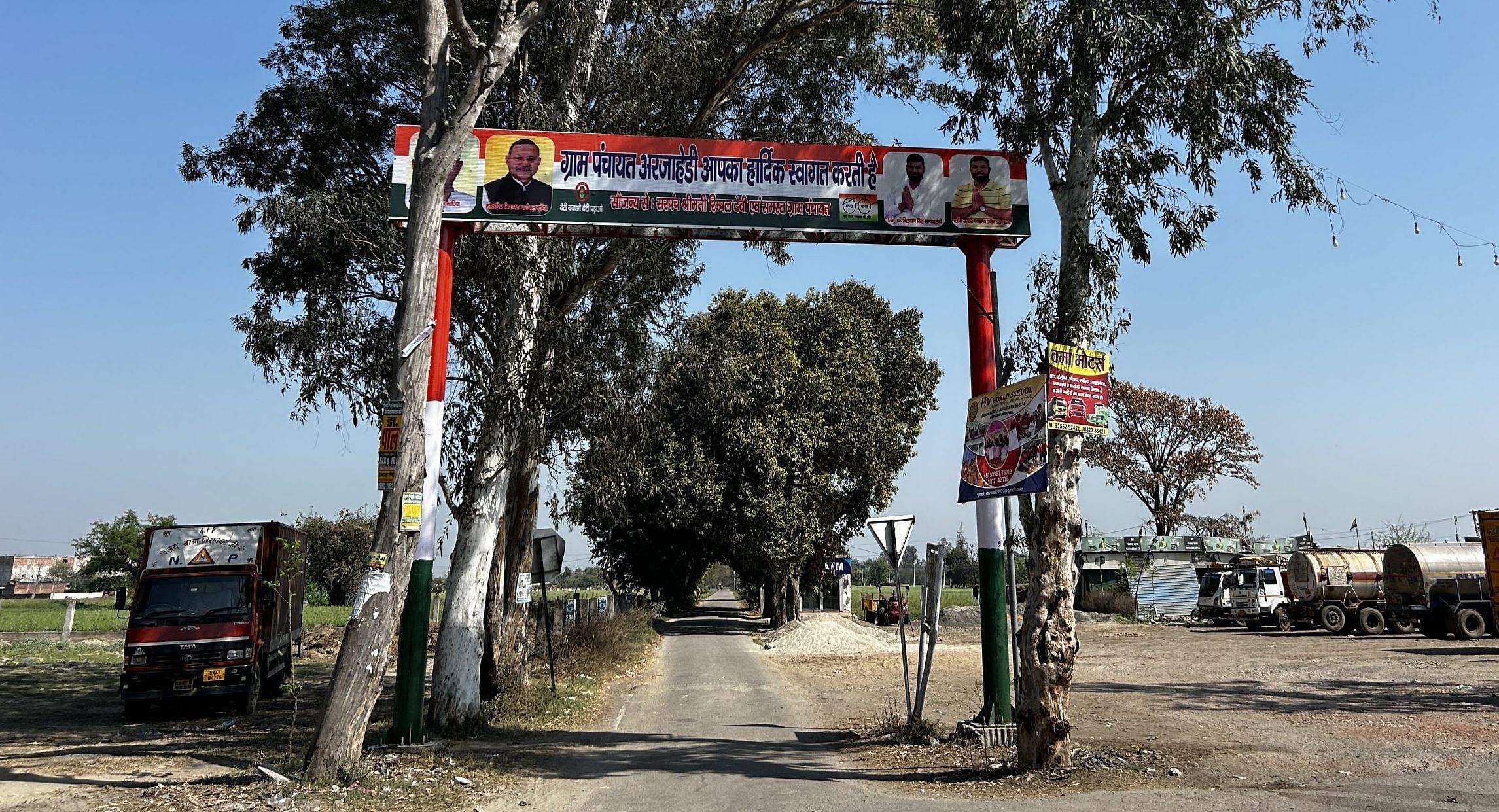Bastar/Haryana: Panchayat elections were held in Haryana in November 2022 after a long wait. Democracy begins with Panchayats, Chief Minister Manohar Lal Khattar Said Then. Today, the panchayat heads are fighting with the Khattar government regarding the new e-tender. Policy,
In December 2022, representatives of Bastar village in the state’s Karnal district prepared an ambitious plan. Drainage pipelines urgently needed to be installed, boundary walls for cremation grounds had to be built, government schools had to be glazed, and new community centers opened. , Some families are also queuing up to get their pension and ration cards made.
But now all the plans are hanging in balance as Khattar wants to eliminate corruption from Gram Panchayats. E-tendering of contractors for large scale public works is his new mantra. Village heads, who follow the old patronage system and work with known contractors, say their positions no longer hold any real meaning.
“An engineer will tell us [how to do] our jobs? They are making a mockery of us by attacking our autonomy and taking away our constitutional rights. How many castes are there in a village, and who knows better than the sarpanch where to make a street or a drain? said Ranbir Singh Samain, president of the Sarpanch Association of Haryana (SAH), at the Panchkula-Chandigarh border before being taken into custody by the police on March 4.
turn of e-tender
Khattar introduced the e-tender policy in February 2021 with an amendment to Rule 134 under the Panchayati Raj Institution (PRI) Act. But at that time no one paid much attention to it as the tenure of the panchayat had ended in the same month and no elections were in sight due to the Covid-19 pandemic and other legal complications. Connected For reservation for women and backward classes.
The policy’s claims of working towards accountability, transparency and quality infrastructure projects were ignored till two months ago, when new sarpanches were elected to power. They were ready to give the money as promised to them by the Khattar government. After all, the CM had announced Rs 300 crore.unanimously elected representative”, and transfer of Rs 1,100 crore to the accounts of Panchayati Raj Institutions for development works.
Ironically, while making these announcements, a January 12 press release from the Chief Minister’s Office made no mention of e-tendering. “It has been decided that Panchayat, Panchayat Samiti and Zilla Parishad will be able to prepare their own budget every year and use their own funds for the development of their area. The government will not interfere in this work.
Later, when sarpanches started planning projects, they realized how fast e-tendering would limit their spending power. Under the policy, a sarpanch can implement a project only if its cost is less than Rs 2 lakh. Any project costing more than this will be done through e-tendering process.
Suresh Kumar Fauji, the sarpanch of Bastar village, changed his views from supporting the policy to opposing it in three months.
“Initially, I supported the policy. But when I issued three e-tenders for my village and faced problems, I changed my stand.
winter of discontent
From January to the whole of February, sarpanches organized block and district level meetings to take up arms against the Khattar government. Villages began to mobilize citizens, and the protest spread across Haryana. A winter of discontent in rural Haryana culminated in a mass movement in the spring. On March 1, the dead body of the sarpanch along with the soldier was full of anger. marched towards CM residence in Chandigarh to protest. “commission khorihas become a jumla for both the Haryana government and the sarpanch body – one wants to do away with it through the e-tender policy and the other says it will be introduced through Pahal.
Police retaliated lathicharge. In response, over 1,000 sarpanches affiliated with the SAH staged a massive protest, which spread to the Panchkula-Chandigarh border. They were forcibly evicted; some were taken into custody after court order.
The sarpanch has returned to his village, but with the support of the Congress and the Indian National Lok Dal (INLD), he has vowed not to give up his movement until the Bharatiya Janata Party (BJP) forms the government. rolls back E-Tender Policy. The events of March 9 will reveal the future course of action – this is the time when Khattar and SAH representatives will initiate a dialogue.

Loss of power?
A few meters away from the soldier’s house, tractors and JCBs are digging a major pond in the village. But this pond is the lowest priority for the villagers, who want the troopers to deal with the poor drainage system first.
“The project is under a budget of Rs 2 lakh, so I can execute it,” says Fauji. But he knows that this will not benefit the villagers who voted him into power.
Fauji explains, “Two major drainage pipelines are the need of the hour, but I cannot start the project as they are stuck in the e-tendering policy.” After failing to complete the first three projects in the village, the sarpanch had to start the process of e-tendering again.
In Kurukshetra’s Dau Majra village, Baljit Kaur “invested” all her savings in her election campaign. The gamble pays off – he wins the coveted sarpanch seat, but, like Fauji, he is depressed, disillusioned and discontented. The e-tender policy has weakened their roles as village heads.

“We do not have [the] It has the power to decide which street needs roads and which needs drainage,” she says.
SAH says that the e-tendering policy is a war against the rural culture which will destabilize their traditional ways. One of the main demands in the Panchkula protest was “village body save campaign (save the village).,
Village heads are apprehensive about another issue – a state-appointed engineer deciding where and how they should direct funds for projects. Saman condemned this as centralization of power. one in reports In The Indian ExpressHe pointed out that with this policy, the government “needs to take into confidence 22 executive engineers from 22 districts of the state to control the entire tendering system of about 6,200 gram panchayats.”
Another protester called the government “Thief, (Chor) to track down the Rs 1,100 crore promised by Khattar for PRIs.
“They need funds for their political campaign in the next assembly elections, so they need to involve their people in development projects,” alleged Sudhir Buana, a village head in Jind district.
However, Haryana’s Development and Panchayat Minister Devendra Singh Babli calls these allegations ‘baseless’. He says that the government has created an online portal where village heads have to upload details of development projects.
He says that around 2,900 development works costing less than Rs 2 lakh have already been started in various villages.
“Around 600 contractors have been registered on the portal. We’ve also reduced the 55-day time frame to a total of [of] 21 days for speed [up] work,” he says.
then vs now
Meva Singh, 60, who served as the sarpanch of Bastar village between 2016 and 2021, calls these protests a farce. During his tenure he built a water tank, banquet hall, a park and a panchayat buildinghe told ThePrint.
“Earlier, the village head used to take 30-40 per cent commission, at least in development works. So, if it is a Rs 20 lakh project, it will eat Rs 8-10 lakh,” he says, adding that the protest has no support among villagers.
The old system did not require any such accountability or transparency. The sarpanch used to cherry-pick laborers and contractors for projects – there were no objective metrics.
“If I had to build banquet halls in gram panchayats, I would have given employment to laborers from my village. I’ll bring a contractor I know. There was no competition to be the best,” he says.
While the e-tendering policy will not take away jobs from local workers, it will establish objective and competitive standards. Sarpanchs say their power and authority will be affected if the process is largely digitized.
The new e-tender policy will be an open and fair game in which anyone can participate. The e-tendering process shall be an open-bid platform where any registered user can participate; The best proposal will win the rights to the project.

Bajinder Singh, a contractor who has previously worked with several sarpanches in Karnal district, is confused by the new arrangement, but says it does not mean a loss of work.
“We can still register ourselves on the portal and get work in the panchayat. It is a loss for the sarpanch whose commission is being deducted,” he adds.
Election posters are still pasted on the walls of offices in Ajrahedi village. building, The colorful pictures of campaigners asking for votes with folded hands have faded over the months. And the foul-smelling sewers nearby have grown mighty and pungent as temperatures — and temps — rise.
(Edited by Hamra Like)